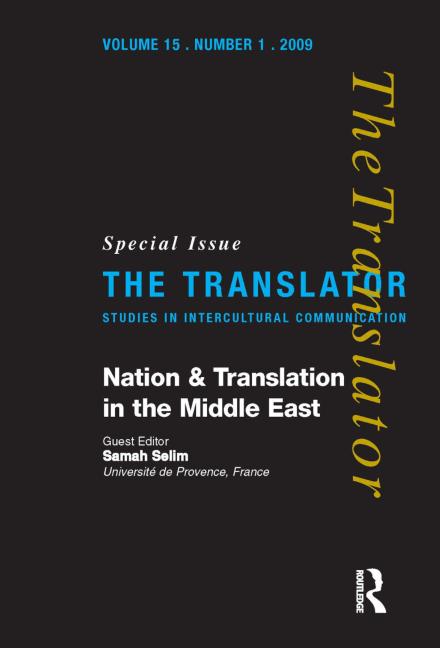In the Middle East, translation movements and the debates they have unleashed on language, culture and the politics and practices of identity have historically been tied to processes of state formation and administration, in the form of patronage, policy and publishing. Whether one considers the age of regional empires centred in Baghdad or Instanbul, or that of the modern nation-state from Egypt to Iran, this relationship points to the historical role of translation as a powerful and flexible tool of cultural politics. Nation and Translation in the Middle East focuses on this important aspect of translation in the region, with special emphasis on translation movements and the production of modernity in a historical context defined by European imperialism, enlightenment universalism, and globalization.
This special issue of The Translator emerged in context of a EUME Workshop on “Nation and Translation“ and includes articles by former EUME Fellows, Şehnaz Tahir Gürçağlar, Dana Sajdi, and former AKMI Fellow, Sunil Sharma.


